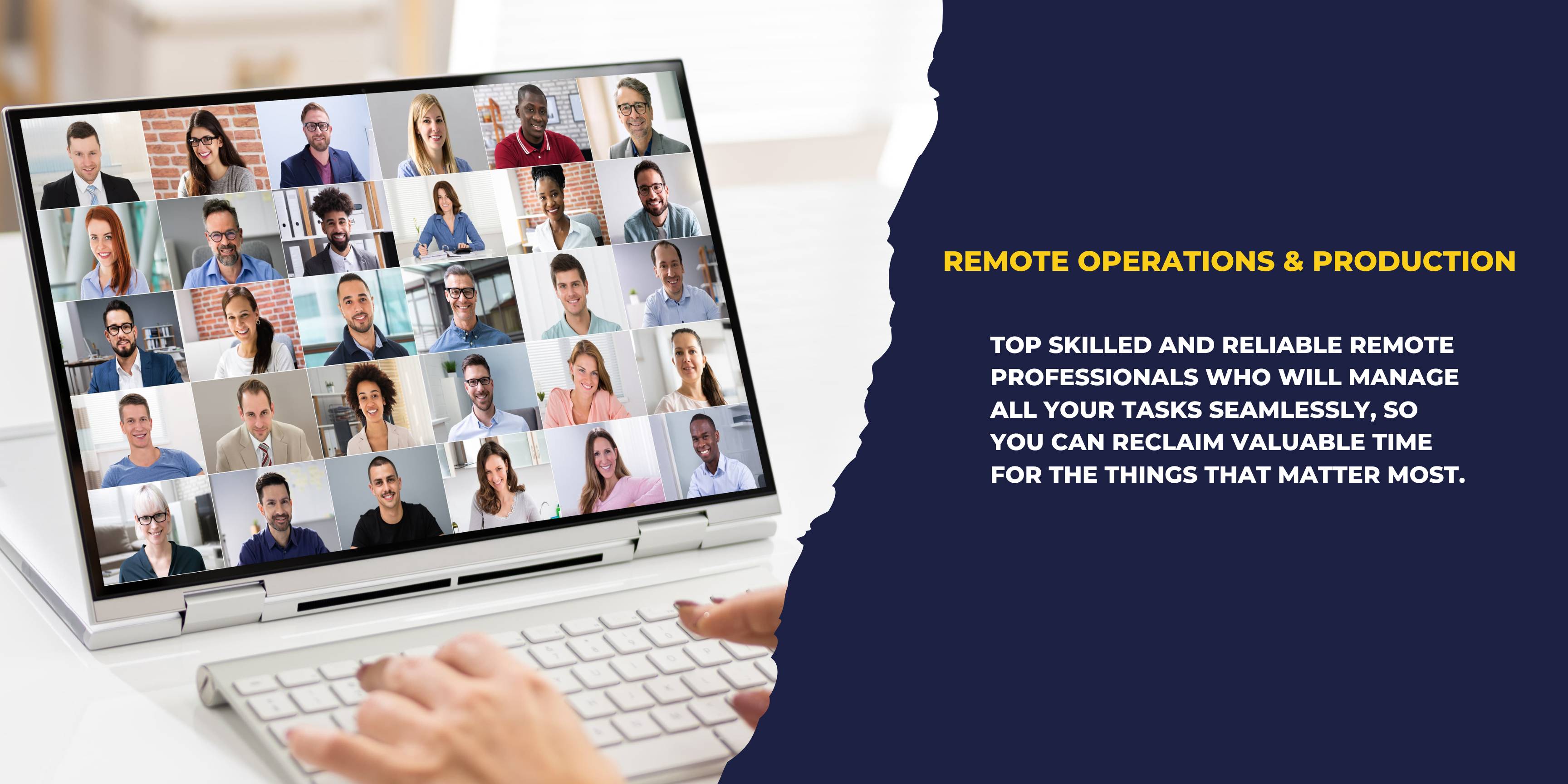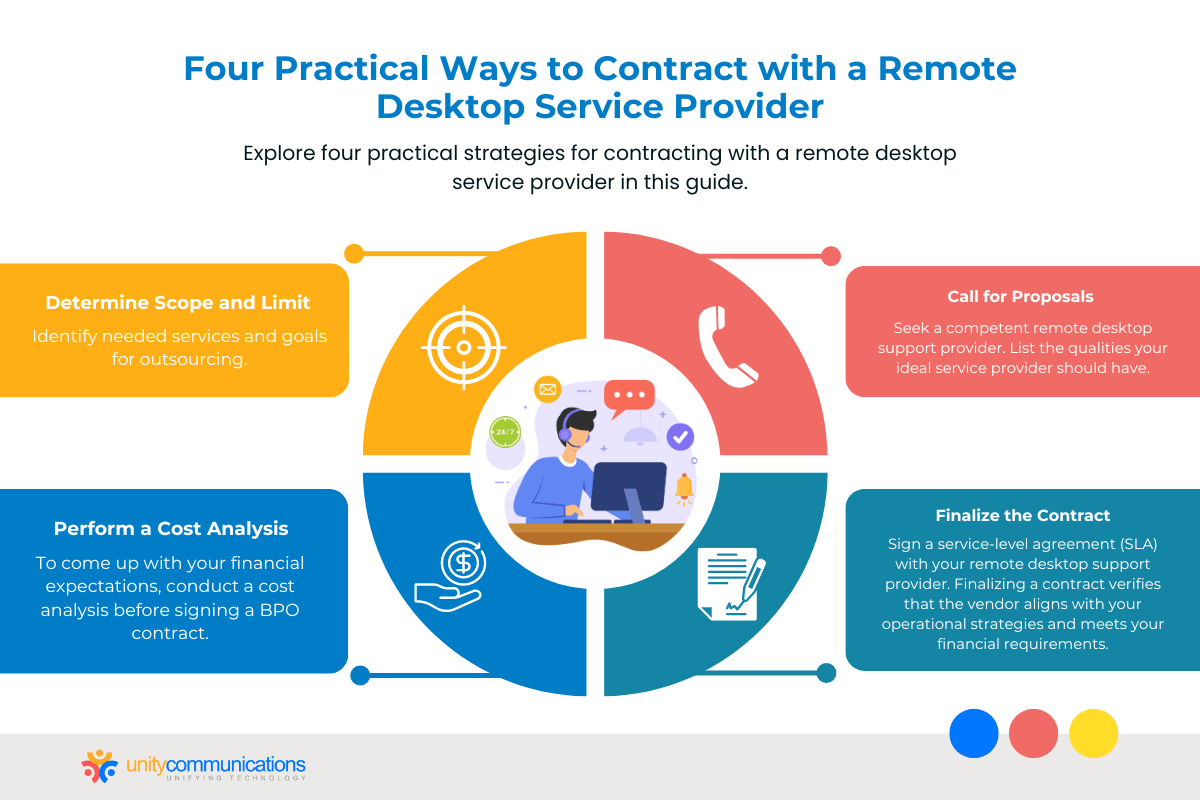How to Develop an Effective Group of Remote Professionals
In today's increasingly electronic landscape, the capacity to construct an effective group of remote experts is necessary for organizations aiming to flourish. It is the subtler aspects-- like supporting a natural business culture and advertising continual knowing-- that can really establish a remote group apart.
Define Clear Goals and Assumptions
Often establishing clear objectives and expectations is important for the success of a remote team (Remote Professionals). Without these elements, group participants may experience complication concerning their roles, obligations, and the general objectives of the task. This uncertainty can lead to lowered efficiency, misaligned efforts, and eventually, task failing
To define clear objectives, it is important to employ the wise criteria-- Details, Measurable, Achievable, Pertinent, and Time-bound. This technique guarantees that each objective is well-defined and can be properly interacted to all group members. In addition, it is essential to align individual objectives with the overarching vision of the organization, promoting a sense of function and commitment among staff member.

Foster Effective Interaction

Regular check-ins and team meetings can assist preserve a strong communication flow, enabling members to share progress updates and talk about any type of obstructions they may experience. It is likewise crucial to acknowledge that different individuals may have varying communication designs. Recognizing and suiting these distinctions can cause even more significant interactions and a much more natural team dynamic.
Urge team participants to verbalize their ideas succinctly and to look for clarification when required. By prioritizing effective interaction, remote teams can boost performance, strengthen relationships, and develop a more comprehensive work setting, eventually leading to better success in accomplishing usual objectives.

Make Use Of the Right Tools
To sustain efficient interaction within a remote team, it is important to make use of the right tools that help with collaboration and enhance process. The choice of tools can dramatically affect performance, guaranteeing that employee continue to be connected and engaged despite geographical ranges.
Begin by implementing task management software application, such as Trello or Asana, to arrange tasks, established target dates, and track development. This cultivates accountability and supplies presence into each participant's payments. Additionally, interaction systems like Slack or Microsoft Teams offer immediate messaging capacities, enabling real-time discussions and fast decision-making.
Video clip conferencing tools, such as Zoom or Google Meet, are vital for in person interactions, which assist construct rapport and enhance connections amongst employee. File sharing and storage space options like Google Drive or Dropbox make certain that important documents are accessible and editable by all team members, promoting partnership on jobs.
Integrating these devices properly develops a setting where remote specialists can grow. By picking the right technology, companies can boost interaction, enhance job administration, and eventually accomplish their goals much more efficiently.
Build a Strong Company Culture
Developing a solid business culture within a remote team is important for fostering engagement and commitment amongst workers. A well-defined culture gives a feeling of belonging and shared purpose, which is essential when team participants are spread throughout various locations. To grow this society, leaders ought to establish clear worths and assumptions that resonate with staff members, making certain that everybody understands the mission and vision of the company.
Routine communication is essential in enhancing this culture. Utilizing video clip phone calls, team conferences, and casual check-ins can help advertise and preserve connections openness. Furthermore, commemorating accomplishments, both big and tiny, strengthens a society of acknowledgment and recognition.
Encouraging group partnership through digital platforms not just improves efficiency however additionally promotes social connections - Remote Professionals. Organizing virtual team-building tasks can further reinforce bonds among employee, making them really feel more incorporated into the company
Last but not least, it is very important to pay attention to worker responses and adjust as needed. By revealing that their voices matter, leaders can develop trust and commitment, inevitably producing a growing reference remote work setting where employees really feel valued and involved.
Encourage Constant Learning and Advancement
A solid company culture prepares for encouraging constant understanding and development within a remote team. By promoting a setting that values growth, organizations can encourage workers to improve their abilities, adapt to new difficulties, and inevitably contribute better to team goals.
To advertise continuous learning, think about carrying out normal training sessions, workshops, and webinars that align with both individual occupation objectives and business demands. Leverage innovation to assist in access to e-learning systems, making certain that resources are readily available for remote employee.
Motivate understanding sharing by developing mentorship programs and developing discussion forums for staff members to trade understandings and ideal practices. Identifying and rewarding staff member who actively take part in learning initiatives my link reinforces the importance of development and motivates others to follow match.
Additionally, performing normal comments sessions can assist determine skill gaps and locations for enhancement, permitting for tailored advancement strategies. By focusing on constant knowing and advancement, remote teams can cultivate a culture of adaptability, innovation, and strength, which are important for browsing the intricacies of today's business landscape.
Verdict
In final thought, the establishment of an effective remote team rests on the assimilation of clear objectives, effective interaction, proper tools, a durable business society, and constant knowing possibilities. By lining up individual payments with organizational purposes and cultivating a setting of openness and cooperation, remote experts can thrive. Remote Professionals. The execution of these techniques not only boosts team communication yet likewise drives motivation, inevitably resulting in boosted performance and success in a remote functioning landscape
It is the subtler elements-- like supporting a cohesive business society and promoting continual knowing-- that can absolutely set a remote group apart.Reliable communication is the keystone of a thriving remote team. By focusing on effective interaction, remote groups can enhance performance, strengthen connections, and develop a more inclusive job environment, inevitably leading to greater success in accomplishing usual goals.
Creating a strong business culture within a remote team is crucial here are the findings for promoting involvement and commitment amongst staff members.In conclusion, the establishment of an effective remote group hinges on the integration of clear goals, reliable interaction, appropriate tools, a robust business society, and continual learning opportunities.